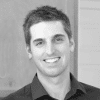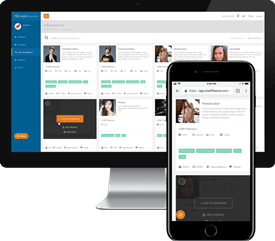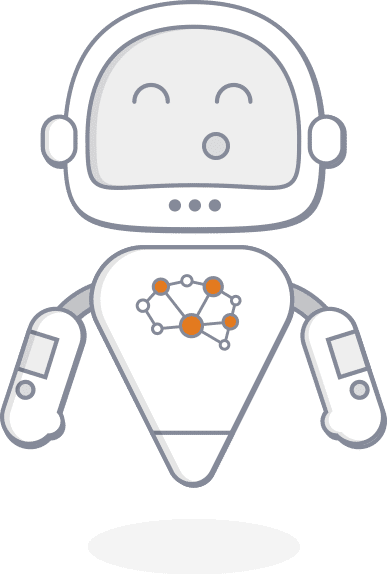Last Updated on May 14, 2021
Pascal Guyon is a multi-platinum music producer, having contributed to contributed to 3 Grammy Nominations. Pascal grew up in a small village in the French countryside and eventually ended up in Los Angeles where he has worked with music elites from around the world. In addition to music, Pascal is also invested in other fields such as trading stocks and crypto currencies, coding, and making video games. You can learn more at pascalguyon.org or follow Pascal on Instagram, LinkedIn and Twitter, to name a few.
According to one of your keynotes, you describe yourself as someone who was stuck in a tiny French village, dreaming to work with the world’s top musicians. Within 15 years, you’ve become someone who has contributed to over 15 million albums sold worldwide and someone Justin Timberlake has described as “super talented” and someone who “thinks outside of the box”. Was there a main contributing factor that got you to Los Angeles, or were there a bunch of different things you would attribute your rapid success to?
So when I was still stuck in this little village as you said, it was clear to me that the people I admired at the time were the big US American music producers. I was bored as hell in my village and honestly, for modern pop music it was also very hard to find people in France advanced enough to compete of US artists, so I really wanted to be in the US.
What happened is that I leveraged Internet and the hot social media of that time, MySpace. I developed strategies that were probably close to what people call growth hacking nowadays. It worked out! It drove a lot of traffic to my page. I was trying to sell my skills thanks to this webpage by posting videos of me playing unusual piano parts, by posting music production snippets… This way I got connected to tons of the most successful music production teams in the US and got my first big placements (with some of Timbaland’s people and with K-Pop artists).
My move to Los Angeles happened another way, thanks to social skills I would say. I got connected to one of the biggest songwriters of all time, a legend in the business: Walter Afanasieff. He’s a music genius, he did some of Mariah Carey’s biggest songs, Barbra Streisand’s… you name it. He invited me in the US for a month along with music executive Chris Ivery (who made the introduction). That’s how I moved. My first two weeks in LA were just a dream: I worked on two albums which got three GRAMMY nominations. When you get these kind of credits, the US immigration is like “yes welcome” you know…
At what point of your career did you get into influencer marketing?
I think it’s just the result of following your passion, trying to become the best at it. You get more and more recognition along the way: more and more people are following your work. They are very curious about what you’re going to do next. I’m not sure when I started influencer marketing. Actually, I think I know. I started teaching when I was nineteen. When I learn about something, I want to share it with people. That’s what you’re supposed to do as a teacher. You’re supposed to have accumulated knowledge, then you share it; so by definition, you influence people, hopefully in the best way possible. And then of course, the marketing side comes with it. You can end up selling your own services or link up with other brands. So it came pretty early on for me just because I started to teach at a young age.
What has been your favorite collaboration to-date? Either as an influencer or as a music producer with an artist…
Artists wise, I always mention my adventures in Cuba. People always expect me to say that I had the best experiences with super famous people. Actually my best musical experiences were with probably lesser known Cuban people. I had the chance to go to Cuba, to live with families who represent the religious music of the island; this really deep stuff! You feel really alive when you live that kind of stuff. So my trips to Cuba when I was in my twenties were my most incredible experiences, not just music wise.
Brand wise, there are two brands that made a lot of sense for me to work with. One of them has been Soundbrenner. It’s a music brand that built a new kind of metronome. Musicians often practice with an annoying click. It’s really super annoying. So they built a metronome that you don’t hear but feel. It’s works with vibrations. Their campaign are all about education. It’s to show musicians that if you practice, you can end up doing cool stuff. So that made a lot of sense for me to work with this brand because I’m definitely all about education.
Another brand that I’ve been collaborating with is CloudApp. This is more on the technology side. It’s a very efficient tool for collaboration. So when you do screenshots, gifs, or videos, you can quickly annotate them and very quickly upload them to the cloud. You can share these in just a few clicks. As a creative person, I need to make sure my creative process is as smooth as possible so that I don’t lose ideas along the way. So these kind of tools are very important to me.
You’ve put together a health regimen on your website (with the disclaimer that you are not a doctor and people need to do their own research) based on a life event. Can you share a little bit about what caused you to start this health research initiative?
Well yeah. When a few weird events happen in your entourage, you start to be curious. You start to notice interesting trends and patterns. It’s actually quite interesting to educate yourself on that subject. It should be taught properly in schools early on. But we know that the healthcare system is driven by big companies… They have goals, financial goals. They’re clearly not interested in you knowing the truth. Sometimes you can find extremely cheap solutions to your problem if you look for it. I also ended up spending a lot of time with great entrepreneurs in Los Angeles. Some of them are in that field and educated us on the subject. If you can naturally improve your focus or performances, why not!Of course, let’s do it!
What led you to branch out and learn coding?
The thing is nowadays a lot of people in the music industry are actually not that knowledgeable. So on one side you have people who have gone through traditional education like practicing piano ten hours a day and getting mentored for years by the most incredible musicians. On the other side, lots of new up and coming singers and producers are pretty much clueless. It’s the sad reality so for somebody like me, having been doing this for so long, it started to be quite a boring circle. Also I was very good at math in school.
I started to hang with entrepreneurs in Los Angeles, I found them fascinating, I found them extremely efficient compared to a lot of what I lived in the music industry. It was very refreshing. So yeah, I made friends with very brilliant people. My math side of the brain was also requesting more action. So I just got inspired by a few people I met. It doesn’t matter if it’s food, if it’s music, if it’s coding. Creating makes me super happy. I get in the flow state and that is what is the most rewarding to me. Keeping building and accomplishing things is just super exciting.
The main reason I started coding is that I’m very curious about what I could potentially create in that field. One of my very first coding projects actually became a proof of concept for a blockchain company. That led me to being invited to speak at music and technology events because it demonstrated a clear use of blockchain combined with music and social media. So now I’m looking forward to the next thing I’m going to create. Hopefully it will become a proof of concept and inspires people.
What advice do you have for someone who feels stuck in their “own little village” somewhere around the world, who wants to break out and make a difference like you have?
Yeah, absolutely. Basically there is social skills and there is internet skills. Social skills wise, I always tell people to be curious and to go meet with the brightest people they can have access to. It doesn’t matter if they are in the same field as you because if they are that bright, they must have very cool friends who actually might be in your field. This way you can bypass all other people trying to do the same thing as you, just because you have a high profile connection. That’s what happened to me through my high profile connection in Hollywood. I got invited to LA and got straight to working with the biggest names in music. I got these big credits right away so that was really cool.
The other skill is Internet, social media marketing… There’s so many incredibly talented artists but they never promote themselves, nobody knows about them. That’s when I talk about how I used MySpace back in the days, to get my work recognized. If you’re consistent on social media and create impressive content on a regular basis, you build a community! It’s up to you to also study marketing to optimize that. Through social skills and by trying to become a little Internet wizard, you can get into anything you want.
Where do you see yourself in five to ten years?
Nowadays what keeps me busy is still music and mostly computer science. There’s also a few other things I work on. I do health research. There’s a few highly disruptive technology companies I help. I’m also an investor, I’ve been a trader for a long time; I studied that very hard as well. My daily routine is split between these all different activities. It’s fun because it’s so different that you never feel that you’re really working; it never gets boring. I spend two hours on one thing, then I switch to the other thing. It’s refreshing. If I have a problem in one field, I try to find the solution by refreshing my mind and working on something in another field. Galileo found solutions to big problems this way. Polymaths function this way: if you’re stuck in computer science, well maybe if you do a bit of music, you’re going to suddenly find the solution to your problem! I know that super bright people I run into like Nolan Bushnell (Atari Computers found) functions this way as well. He embraces randomness. I really get that. He goes to random conferences knowing that it might trigger an unexpected idea! When you expose yourself to random stuff, it does trigger things in the brain!
Note: Influencer Spotlights are edited for time and clarity.

Andrew is the Head of Client Services for Intellifluence and has a background in communications. He is committed to helping brands get the most out of their campaigns and is the co-host of the Influencer Spotlight series.





